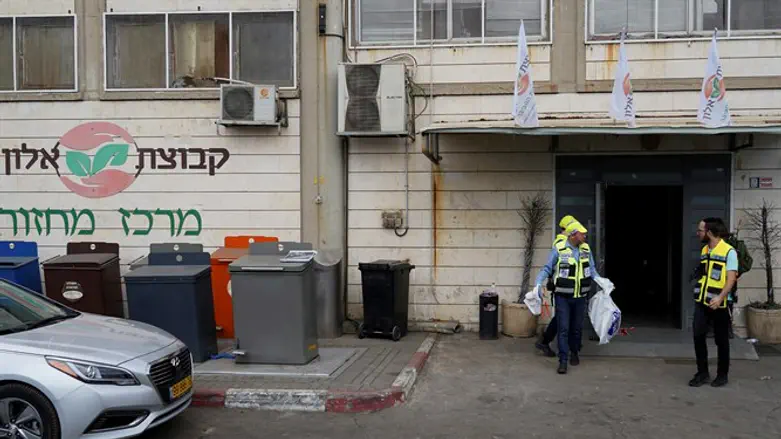
The IDF Court of Appeals Chief Justice Col. Netanel Benisho decided today to "toughen" the sentence of the minor who was convicted of failing to prevent the attack in Barkan, in which Kim Yehezkel and Ziv Hajabi were murdered, sentencing him to two years in prison.
In his speech, the judge spoke about life plagued with terror attacks: "In the traumatic reality in which we live, when a few people rise up to carry out terror attacks, it is in the hands of others to prevent them from doing so. A young man approaching maturity is expected to have a basic moral backbone that should motivate him to act to prevent the murder of innocents."
The judge also referred to the support infrastructure enjoyed by the murderer, saying, "Similar terrorists receive a helpful and supportive social envelope that's likely to strengthen them, before and after the act." Later he explained the need to deter such support to prevent recurrence of attacks.
Attorney Chaim Bleicher of the Honenu Organization representing the families of the murdered in the Barkan attack welcomed the decision: "The ruling given by the Chief Justice in the appeal is a very important judgment. I would not exaggerate if I called it a real revolution. The ruling says that the punishment of anyone around the terrorist, the support infrastructure, those who didn't prevent the attack, those who helped the attack or assisted after the fact, should be made more stringent, because it's the support that enables the attacks. Or in the words of the judge, 'individual attacks can be stopped by individuals,' and therefore those individuals who didn't prevent the attack, who assisted, must be severely punished."
Bleicher noted that this is a conceptual change: "If the court's approach until now has been to waive, or not to make matters worse, with the collaborators and the terrorist's environment, finally there's a change in direction. The terrorist received two years in prison, and the court says he wasn't served the sentence because it's an appellate court and he's a minor, and the aim is to make the punishment more severe for many years."
At the end of his words Bleicher referred to the case of the mother of the terrorist from Barkan, who was also convicted of not preventing the attack, "We're now on the case of the mother of the terrorist and soon there'll be a verdict. Several times lower courts wanted to release her, and we hope the words of the Chief Justice of the Court of Appeals will be clear to all the other courts that the only way to stop terror is to fight the terror environment, and toughening punishment for the support - those who didn't prevent the attack, who helped. This is the way to save the lives of civilians and the beginning of the road to stop terror."
The minor's indictment indicates that he met with the Barkan murderer several times before the attack, and knew of his intentions. On the evening of the attack, the murderer also told him that his father (the minor's) would be released the next day from Israeli prison, indicating that the murderer intended to carry out an abduction for bargaining purposes.
The minor was sentenced to eight months in prison, leading to the State Attorney's Office's appeal against the leniency of the sentence that was accepted today by the Court of Appeals Chief Justice who increased his sentence to two years.